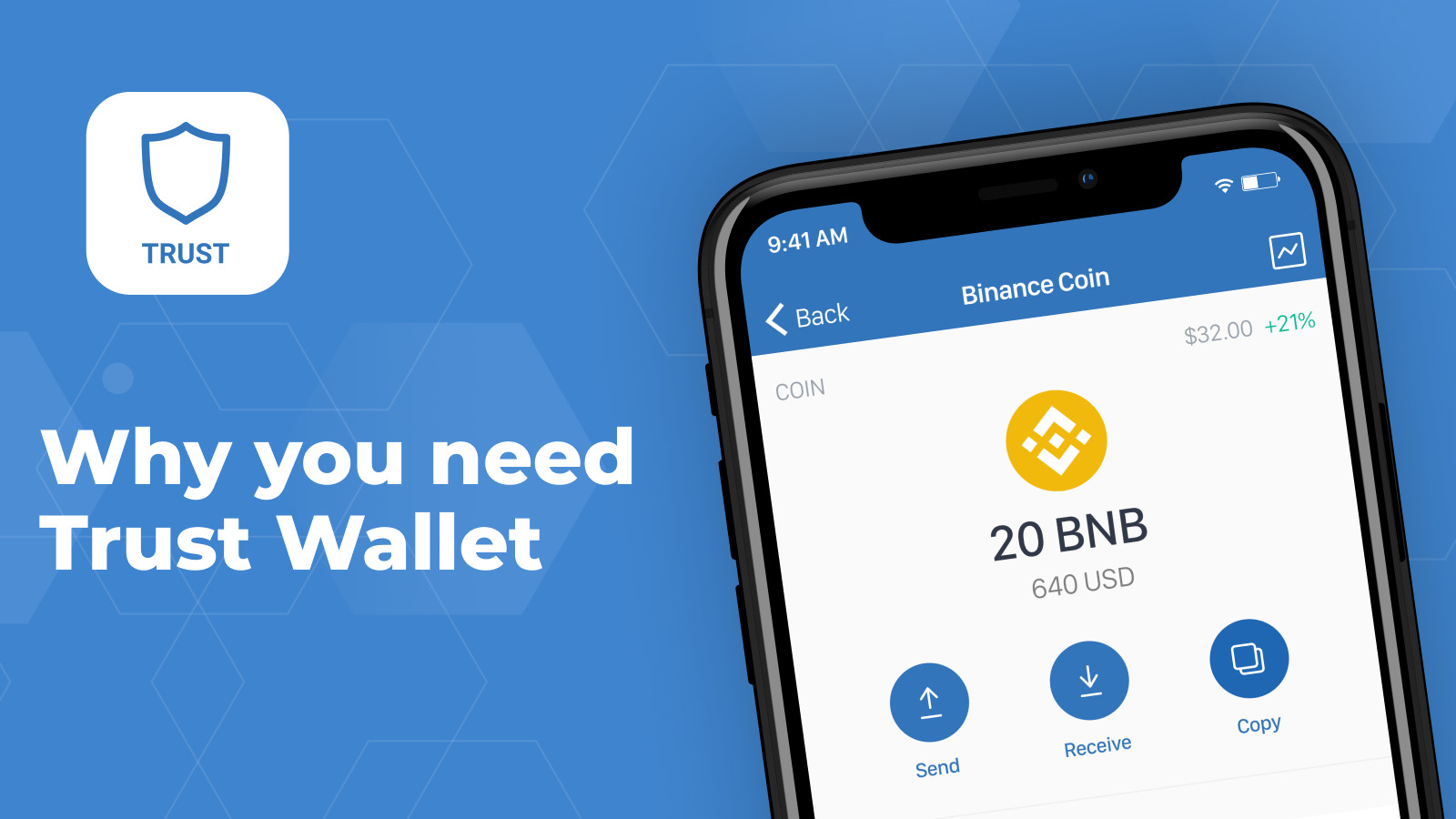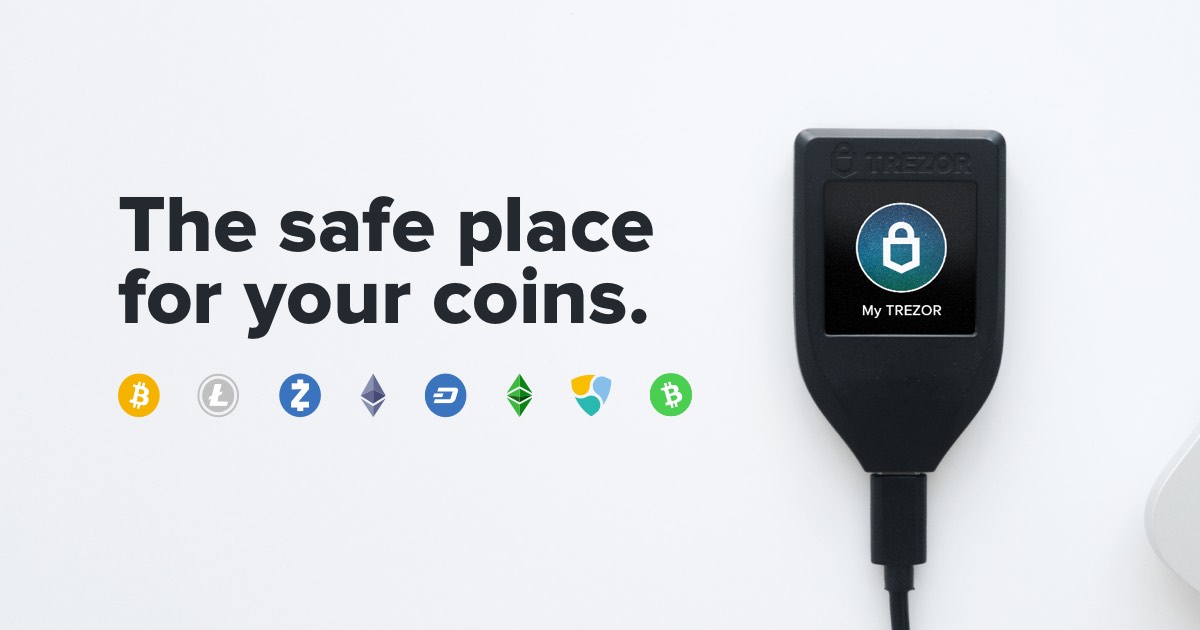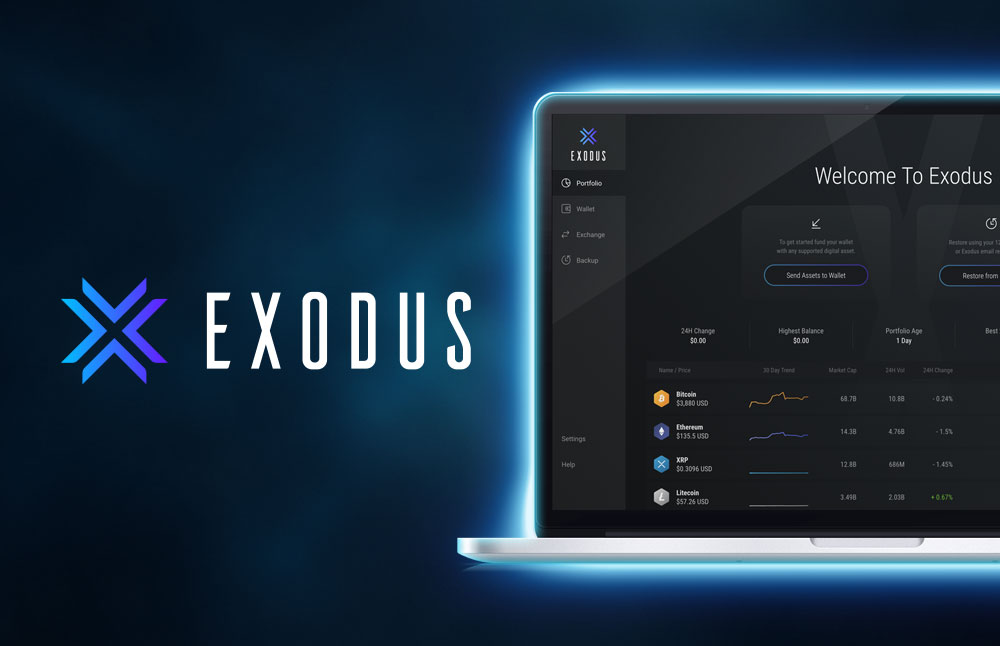Top 10 Best eWallet Apps For Cryptocurrency In 2024
The fusion of traditional and digital finance has given birth to a burgeoning ecosystem of cryptocurrency eWallets. These digital wallets are not merely a trend; they represent the future of how we manage, invest, and transact with digital assets. To stay ahead of the game in this fast-paced realm, it’s imperative to be well-informed about the Top 10 Best eWallet Apps for Cryptocurrency in 2023.
In this article, we embark on a journey through the world of the Top 10 best eWallet Apps for Cryptocurrency. Whether you’re a seasoned crypto enthusiast, an investor, or simply someone curious about the future of finance, this guide will equip you with the knowledge needed to navigate the exciting world of cryptocurrency eWallets in 2023.
1. What is an E-wallet?

E-wallets for cryptocurrency come in various forms, including software wallets, which can be mobile apps or desktop applications, as well as hardware wallets, which are physical devices designed specifically to safeguard crypto keys offline. They enable users to send, receive, and monitor their cryptocurrency holdings, providing a vital tool for participating in digital currencies’ decentralized and rapidly evolving world.
2. Top 10 Best eWallet Apps in 2023 For Cryptocurrency
2.1. COINBASE
Coinbase provides a highly secure method for storing cryptocurrencies online. Although its wallet operates on a custodial model, it incorporates robust security measures. For instance, every Coinbase account necessitates two-factor authentication for enhanced protection. Email authentication becomes mandatory if an account holder logs in from a new IP address or device.
Furthermore, Coinbase employs cold storage for 98% of its clients’ cryptocurrency assets, ensuring that most of these holdings remain isolated from live servers. Notably, the Coinbase Vault feature is commendable, introducing a 24-hour grace period for withdrawal requests when activated. This affords users valuable time to identify any potential compromise of their account and promptly notify Coinbase. However, it’s essential to acknowledge that Coinbase does have certain drawbacks, particularly regarding fees.
PROS
- Intuitive and easily navigable user interface
- Capable of accommodating over 5,500 digital assets
- Provides support for multi-signature and two-factor authentication
- Backed by a trusted trading platform with the ability to recover lost or stolen assets
CONS
- A 1.49% commission for cryptocurrency trading
- Imposes nearly a 4% charge for depositing funds using a debit or credit card
2.2. BINANCE
Binance stands as a prominent cryptocurrency exchange that offers an integrated wallet, creating a seamless combination for both storing and trading cryptocurrencies. Users can access this functionality through Binance’s web platform and iOS and Android mobile applications, ensuring convenience and flexibility for traders on the go.
Setting up the Binance wallet is a hassle-free process, as it is automatically included in the user’s account, and registering with Binance takes only a matter of seconds. Binance’s primary exchange and wallet accommodate a diverse range of over 350 cryptocurrency tokens and numerous trading pairs. Additional markets can be explored within the Binance Innovation Zone for those interested in emerging cryptocurrencies.
To ensure the security of funds, Binance’s web and mobile wallets are fortified with multiple protective measures, including IP and device whitelisting, two-factor authentication, and the use of cold storage. Additionally, Binance has instituted a Safe Asset Fund for Users (SAFU), which allocates a portion of trading commission revenues to an insurance reserve. This mechanism aims to mitigate potential losses in the event of a Binance security breach, although its effectiveness depends on the size of SAFU and the scale of the breach.
PROS
- A web and mobile wallet linked to the Binance exchange with custodial services
- Compatibility with numerous cryptocurrencies
- Facilitates cryptocurrency trading directly from the wallet balance
- Low trading commissions at 0.1%
- Simple means of earning interest on dormant cryptocurrency tokens
CONS
- Lack of transparency regarding cold storage statistics
- SAFU balances remain undisclosed
2.3. TRUST WALLET
Trust Wallet emerges as a top choice among smartphone users seeking a Bitcoin wallet. This native app seamlessly caters to both iOS and Android users and offers a fee-free initial setup, with charges only applicable when transferring funds to another wallet address.
The wallet configuration process is swift and supports fingerprint ID for added security. Trust Wallet boasts compatibility with over 70 blockchain networks, encompassing popular options like Bitcoin, Arbitrum, Solana, and Cardano. Additionally, Trust Wallet accommodates NFT storage and grants users access to the decentralized web, facilitating activities such as anonymous connections to Uniswap for interest earnings and OpenSea for NFT purchases.

PROS
- Top Bitcoin wallet application for both iOS and Android users
- Capable of storing a vast array of digital assets and NFTs
- Effortlessly integrates with the Web 3.0 economy
- Incur fees solely when making wallet-to-wallet transfers
CONS
- Elevated fees associated with debit/credit card transactions
- Lacks live chat support option
2.4. METAMASK
MetaMask, a widely recognized crypto wallet launched in 2016, has gained immense popularity with over 30 million users, firmly establishing itself as a leading Ethereum wallet in the cryptocurrency market. The best part? It’s entirely free to use. For those who prefer mobile accessibility, MetaMask offers a comprehensive iOS and Android app that provides full functionality. Alternatively, desktop users can seamlessly install the browser extension, compatible with Chrome, Edge, Brave, and Firefox browsers. Both options initially connect to the Ethereum network, offering support for a plethora of ERC20 tokens.
Users of MetaMask can manually add support for additional networks such as Optimism, Polygon, Arbitrum, Avalanche, and Binance Smart Chain. However, this manual setup may not be beginner-friendly.
Nonetheless, it’s worth noting that MetaMask does not accommodate Bitcoin deposits and lacks support for other major cryptocurrencies like Cardano, XRP, and Solana. Another drawback pertains to MetaMask’s association with third-party payment processors, which, while enabling fiat-to-crypto purchases, often entail high fees.
PROS
- Optimal cryptocurrency wallet for safeguarding Ethereum and other ERC20 tokens.
- It comes with no cost; you can use it for free.
- The choice between a mobile application or a browser extension is available.
- Gained 30 million users since its launch in 2016
CONS
- The installation of non-Ethereum networks requires manual configuration.
- Does not offer support Bitcoin.
2.5. LEDGER NANO
Ledger Nano stands out as one of the premier choices for a cryptocurrency wallet regarding security. Despite its price tag, which can go as high as $279, it primarily targets investors prioritizing the utmost security, a realm in which Ledger Nano excels.
Notably, the Ledger Nano device remains perpetually disconnected from live servers, effectively shielding investors from remote hacking attempts. Even in the event of device theft, unauthorized access proves nearly impossible due to the mandatory entry of a PIN on the device prior to authorizing any transfers.
Moreover, wallet owners retain the capability to recover their cryptocurrency tokens remotely. Another notable feature of Ledger Nano is its support for Bluetooth connectivity, enabling users to link their wallet to the Ledger Nano app and desktop software without needing an internet connection. Consequently, users can buy, sell, and trade cryptocurrency through third-party platforms.
PROS
- Ideal Bitcoin wallet for individuals focused on long-term investments.
- Permanently offline, maintaining no connection to servers.
- In the event of theft, stolen devices can be remotely recovered.
- The most affordable model is available for a mere $79.
CONS
- The most advanced model commands a higher price of $279.
- Less suitable for actively conducting transactions involving sending or receiving funds.
2.6. TREZOR
Regarded as one of the leading cold cryptocurrency hardware wallet providers currently available, Trezor offers two distinct models: the ‘T’ and the ‘One’. The entry-level ‘One’ model, priced at a modest $69, provides secure offline storage, requiring users to input a PIN on the device to authorize transactions. On the other hand, the ‘Model T’ comes at a higher cost of $219 and boasts touchscreen functionality as well as support for USB type C. However, the notable price disparity between the two models doesn’t translate into significant feature differences.
Trezor also offers the convenience of iOS and Android apps and desktop software compatible with Windows, Mac, and Linux. This software allows users to monitor their cryptocurrency portfolios through a user-friendly dashboard conveniently.
PROS
- Access to cold storage starts at just $69.
- Extensive support for thousands of cryptocurrencies, including all ERC20 tokens.
- Effortless portfolio monitoring via the Trezor app and desktop software.
- The time delay feature acts as a deterrent against brute-force PIN attempts.
CONS
- The advanced ‘T’ model may not offer sufficient added value to justify its $219 price tag.
- It may not be the best choice for active cryptocurrency investors.
2.7. COINBASE
Coinbase provides a highly secure way to store cryptocurrencies online, making it one of the most reliable custodial storage solutions. Their wallet is feature-rich in terms of security, with mandatory two-factor authentication for all Coinbase accounts and an additional layer of email authentication required for new IP addresses or devices during login.
Coinbase’s extensive use of cold storage sets it apart, safeguarding 98% of client crypto assets away from live servers. The Coinbase Vault feature is also commendable, introducing a 24-hour grace period for withdrawal requests when activated, affording users valuable time to detect any potential account compromise and contact Coinbase for assistance.
However, it’s worth noting that Coinbase has its drawbacks, particularly in terms of fees. For instance, users conducting cryptocurrency trades through their Coinbase wallet are subject to a 1.49% commission, while purchasing crypto with a debit/credit card incurs a steeper cost of 3.99%.
PROS
- Highly regarded for secure custodial storage.
- Supported by a regulated, publicly traded exchange, boosting trust and accountability.
- Offers a user-friendly interface, ideal for newcomers.
- Enables convenient cryptocurrency trading directly within the wallet.
CONS
- Shares common security vulnerabilities and weaknesses with other hot storage solutions
- Only accessible on mobile and tablets (except for Chrome extension)
2.8. ELECTRUM
Electrum adheres to the philosophy of simplicity, providing a Bitcoin-exclusive wallet that forgoes exchange functionalities or interest-bearing tools. Instead, it offers a secure way to store BTC tokens on a desktop computer.
Electrum is completely free to use and incorporates multiple layers of security measures. Users can maintain their private keys offline, bringing them online only when initiating a transfer. Electrum does not possess access to users’ private keys; these keys are encrypted directly on the user’s desktop device. Additionally, Electrum has developed an Android app that further enhances security by supporting multi-signature (multi-sig) transactions. In essence, this feature mandates user confirmation for outgoing transactions on both the desktop and mobile wallets.
PROS
- Quick and straightforward to configure
- Enhanced security compared to alternative hot wallets
- Adjustable transaction fee options
- Minimized wallet downtime due to server configurations
CONS
- Not ideal for beginners due to setup complexity
- Lacks customer support via chat, email, or phone
2.9. EXODUS
Exodus is a top choice among novice cryptocurrency enthusiasts seeking non-custodial storage solutions. Its wallet interface offers exceptional user-friendliness across various supported devices, encompassing mobile apps for iOS and Android, desktop software compatible with Windows, Mac, and Linux, as well as browser extensions for Chrome and Brave.
Exodus excels as a tool for actively monitoring cryptocurrency portfolio balances, allowing users to specify their preferred fiat currency and delivering real-time pricing data for each cryptocurrency held. Additionally, Exodus augments its offerings with statistics and insights, such as highlighting the best and worst-performing coins within the portfolio.
In terms of cryptocurrency support, Exodus impressively covers a vast array of over 260 cryptocurrencies, spanning from BNB and Solana to Ethereum and Bitcoin. The wallet also extends its compatibility to include NFTs and integrates seamlessly with Web 3.0 applications, including platforms like Uniswap and Raydium. Importantly, Exodus distinguishes itself by imposing fees only when sending cryptocurrency to another wallet.
PROS
- A user-friendly wallet that offers real-time insights into cryptocurrency portfolios.
- Extensive support for over 260 cryptocurrencies.
- Compatibility with desktops, mobile devices, and web browsers.
- No fees for wallet setup or usage.
- 24/7 customer support
CONS
- High in-wallet exchange fees
- No native 2-factor authentication
- No multi-signature support
2.10. COINOMI
Coinomi boasts compatibility with an extensive roster of over 125 blockchain networks, accommodating virtually every imaginable cryptocurrency. This encompassing range extends to cryptocurrencies on networks like Bitcoin, Binance, Ethereum, Tron, and many others, making Coinomi an excellent choice for those with diversified cryptocurrency portfolios.
Established in 2014, Coinomi prioritizes security with a suite of protective tools. For instance, Coinomi preserves the anonymity of IP addresses and employs encryption to secure private keys directly on the user’s device. Furthermore, Coinomi offers users the opportunity to stake their cryptocurrency tokens via cold storage, combining the benefits of passive income generation without the need for wallet connectivity to live servers. ]
Most notably, Coinomi is entirely free to use, with its revenue generated when users purchase crypto using a credit card through its third-party partner, Simplex. However, users should exercise caution as Simplex imposes fees that can reach up to 5%.
PROS
- Comprehensive security features, including private IP addresses.
- Support for over 125 blockchain standards.
- Staking capabilities for cryptocurrency in cold storage.
- Multi-device support, including mobile apps and desktop software.
CONS
- Collaborates with Simplex for credit card payments, which may incur up to 5% fees.
CONCLUSION
In conclusion, this article offers an array of versatile options of Cryptocurrency eWallet Apps, each catering to unique user needs and preferences. As the crypto space continues to evolve, these eWallet apps adapt by expanding their support for various cryptocurrencies, implementing advanced security features, and enhancing user experiences. Whether you’re an experienced trader looking for the utmost security or a newcomer seeking simplicity, this list of the top 10 eWallet apps for cryptocurrency in 2023 serves as a valuable guide to help you navigate the ever-expanding digital asset universe. Ultimately, the best eWallet app is the one that aligns with your specific crypto goals, whether it’s long-term storage, frequent trading, or exploring the exciting world of decentralized finance.





